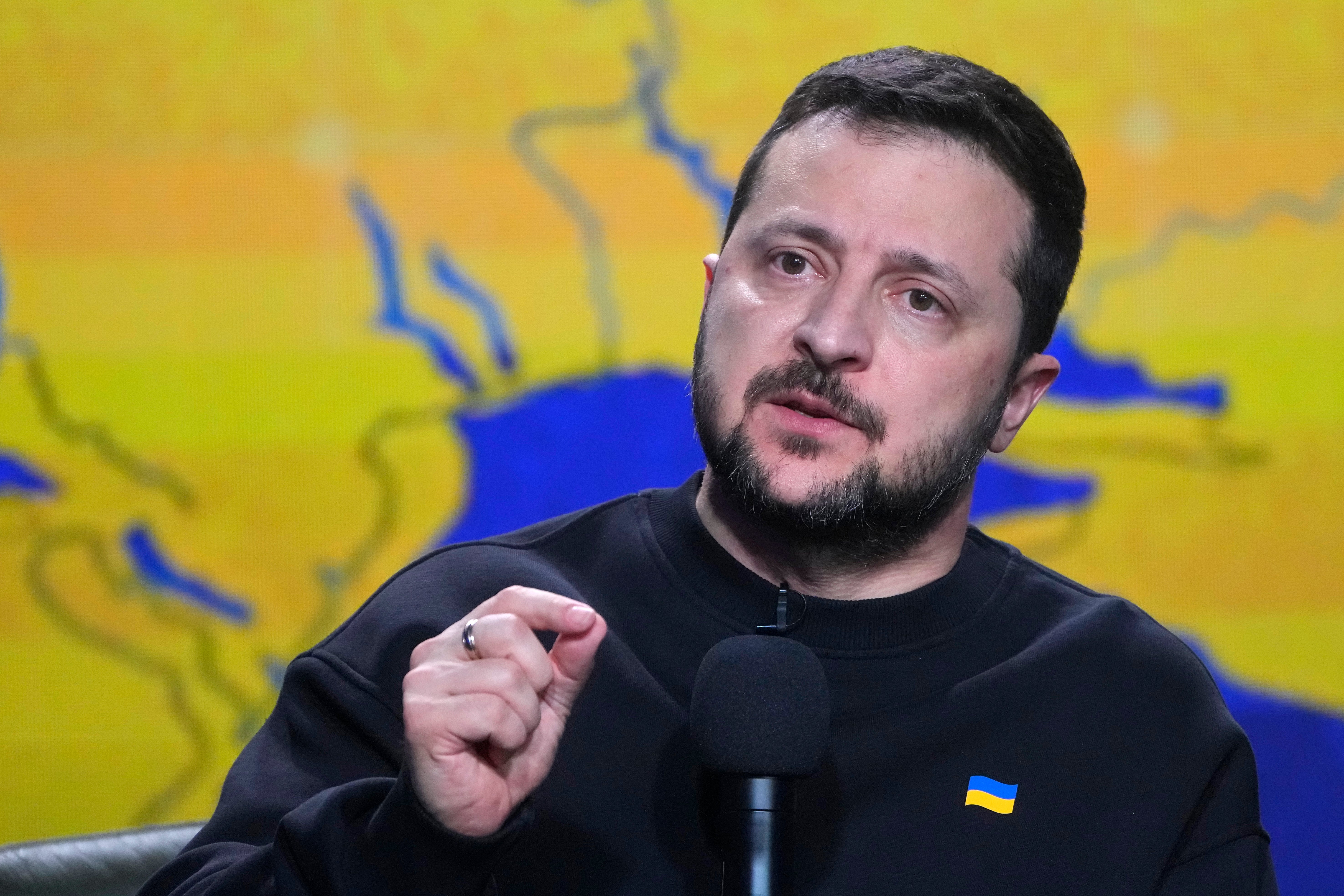Ukraine's Zelenskyy will sign security agreements with Germany, France as Kyiv shores up support
Ukrainian President Volodymyr Zelenskyy is expected to sign bilateral security agreements with Germany and France as Kyiv works to shore up Western support nearly two years after Russia launched its full-scale war

Your support helps us to tell the story
From reproductive rights to climate change to Big Tech, The Independent is on the ground when the story is developing. Whether it's investigating the financials of Elon Musk's pro-Trump PAC or producing our latest documentary, 'The A Word', which shines a light on the American women fighting for reproductive rights, we know how important it is to parse out the facts from the messaging.
At such a critical moment in US history, we need reporters on the ground. Your donation allows us to keep sending journalists to speak to both sides of the story.
The Independent is trusted by Americans across the entire political spectrum. And unlike many other quality news outlets, we choose not to lock Americans out of our reporting and analysis with paywalls. We believe quality journalism should be available to everyone, paid for by those who can afford it.
Your support makes all the difference.Ukrainian President Volodymyr Zelenskyy is expected to sign bilateral security agreements with Germany and France on Friday as Kyiv works to shore up Western support nearly two years after Russia launched its full-scale war.
The Ukrainian leader is meeting German Chancellor Olaf Scholz in Berlin and continuing to Paris to meet French President Emmanuel Macron.
The bilateral security and long-term support agreements follow a security agreement between Ukraine and the U.K. signed when British Prime Minister Rishi Sunak visited Kyiv last month. That accord covers the next 10 years.
Zelenskyy will continue Saturday to the Munich Security Conference, an annual gathering of high-ranking security and foreign policy officials, where he plans meetings with U.S. Vice President Kamala Harris among others.
Ukraine has moved onto the defensive in the war, hindered by low ammunition supplies and a shortage of personnel, although it has kept up strikes behind the largely static 1,500-kilometer (930-mile) front line.
European allies have appealed to the U.S. Congress in recent days to approve a package that includes aid for Ukraine, a $60 billion allotment that would go largely to U.S. defense entities to manufacture missiles, munitions and other military hardware that are being sent to the battlefields in Ukraine.
Scholz traveled to Washington a week ago to underscore the urgency of releasing U.S. funding. After meeting President Joe Biden, he said: “We shouldn’t beat around the bush: support from the United States is indispensable for the question of whether Ukraine will be in a position to defend itself.”
Germany is now the second-biggest supplier of military aid to Ukraine after the U.S., and Scholz has called recently for other European countries to step up with more weapons deliveries.
Zelenskyy has made one previous visit to Berlin since the Russian invasion in February 2022, in May last year. Friday's trip will be his third to Paris since the invasion, following visits in February and May 2023.